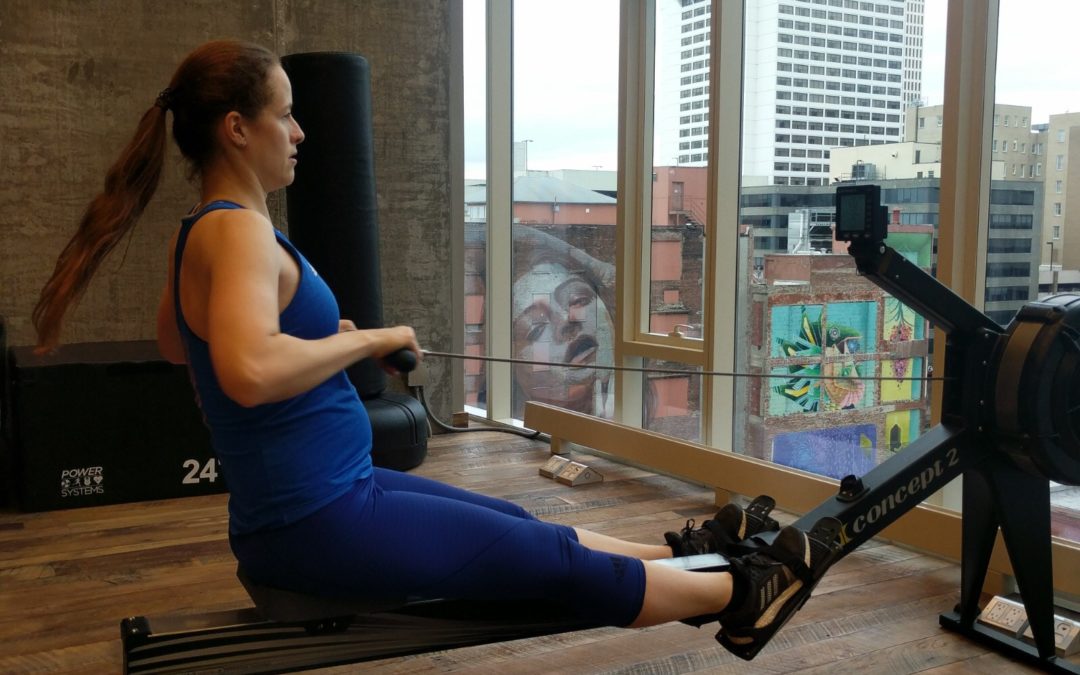When I found out I was pregnant with my first child I was currently in the process of running 12 Marathons for charity. I still had 2 Marathons to run, and I was scared that it would be a high risk if I continued to run. But I educated myself about exercising during pregnancy and and all the benefits and risks attached. In the end I ran two more Marathons in my first trimester, as I felt confident that it would not harm the baby.
I have collected all the knowledge about exercising during pregnancy that I gained through my research here and want to share it with you. Please bear in mind that I am not a doctor, midwife or personal trainer. Any pregnancy is different, so please conduct your health professional beforehand.
Benefits of exercise during pregnancy
Working out is generally good for you
You have probably heard that before: being active, exercising and working out is good for your overall health and your cardiovascular system, no matter which age you are. Active people are on average less like to get sick. No matter if this is the common cold or severe illness like diabetes or a heart attack. Moving will keep you healthy, and you should therefore not stop per se during pregnancy, unless your doctor asks you too.
This is a fairly new approach. In the past pregnant women were seen as too fragile and weak to work out. But recent studies have shown, that there are a lot of health benefits to exercising during pregnancy.
Lower risk of excessive weight gain
If you have a healthy bodyweight , the recommended weight gain during pregnancy is 10 to 15 kilograms. Most of it is your baby’s weight, the uterus, the placenta, the extra blood etc. But a little bit is also extra fat stores, as your body prepares energy stores for breastfeeding. This was a very useful thing to do in the past, but in today’s modern world where we live with an abundance of food, it can sometimes have unintended consequences. The more fat you gain during pregnancy, the harder it is to lose it afterwards. Not only is being overweight unhealthy when you are not pregnant, but especially when you are pregnant as it can cause harm to you and your baby.
The NHS in the UK lists the following risks of excess weight on their website:
- miscarriage
- gestational diabetes
- high blood pressure and preeclampsia
- blood clots
- post-partum excessive bleeding
- higher risks of fetal abnormality
- higher risk of interventions at birth, including cesarean section
So avoiding excessive weight gain is generally a good idea, and regular exercise during pregnancy can help you with that.
Better mood through endorphins
When you exercise and work out your body releases endorphins. When you exercise while being pregnant, these endorphins will also be released into your baby’s blood stream via the placenta and umbilical cord. If you get these happy hormones after you worked out, your baby is getting them too. Happy mommy, happy baby. This can be especially helpful, if you’re experiencing anxiety or mood sings during your pregnancy.
Working out during pregnancy can help with labor
Studies have shown, that regular exercise while pregnant is correlated with shorter labor times. In this study published in the European Journal of Obstetrics and Gynecology researchers performed a randomized clinical trial of pregnant women, which were either assigned to a moderate aerobic exercise program, or no program. Women that exercised regularly were in labor on average one hour shorter than the non exercise control group, and also received less epidurals.
Exercising while pregnant can help with several gestational medical issues
The American College of Obstetricians and Gynecologists also claims that regular exercise during pregnancy can help with or reduce the risk of
- lower back pain
- constipation
- gestational diabetes
- preeclampsia
- cesarean birth
Faster recovery after birth
If you stayed active during your pregnancy, you are also more likely to experience a faster recovery afterwards. Labor is a physical workout, so the fitter you are, the better you can cope with it. But not only general fitness is important. If you started training your pelvic floor before giving birth, you are also more likely to regain that strength afterwards due to your muscle memory.
In addition, a regular workout routine will help you lose that extra body weight you put on during pregnancy and also keep it off.
Risks of working out and exercising while being pregnant
When you have a preexisting condition, your doctor will tell you not to work out as this can be unsafe. These conditions include preeclampsia, placenta previa, preterm labor or cervical insufficiency. Exercising when you suffer from one of these conditions can do serious harm to your baby, so please be careful and listen to your doctor. But even when you have a healthy pregnancy there are also other risks that you want to be aware of.
Tiredness and exhaustion
Especially at the beginning of your pregnancy you might feel overly tired and exhausted. This can be absolutely normal and is usually due to the hormonal changes. Once the flow of hormones slows down your energy levels should come back up. Nevertheless you might want to be careful with exercising during pregnancy when you are too tired. Just listen to your body, and if it does not feel like working out, but more like taking a nap, then take that nap. There will be enough time to work out once you are feeling better.
Overheating and overexertion
Raising your body temperature too high can have adverse effects on the fetus, especially during the first trimester of your pregnancy. It can increase the risk for miscarriage and birth defects. You should therefore avoid hard workouts in the heat, or Hot Yoga classes. A quick trip to the sauna is fine if you are used to it, keep it short and also chose a low temperature.
You also have to consider that your baby is getting all the nutrients and oxygen only through you. If you work out too hard or too long, you are depriving your baby of these valuable nutrients. So stay in the moderate intensity zone for most of the time, stay hydrated, and focus on good nutrition to keep your blood sugar stable.
Less balance and range of movement because of the belly
Especially during the later stages of your pregnancy your belly will be in the way of nearly everything. Working out while being pregnant is still possible, but sometimes simply not feasible. While this is probly just annoying, a big bump can also cause serious damage and can be dangerous while exercising during pregnancy. You will have a different center of gravity, which can cause imbalances. If you and if you fall, you will have a higher risk to injury (see next point).
Higher risk of injuries due to softer ligaments
When you are pregnant your body releases a hormone called Relaxin to soften your ligaments. This is definitely useful to prepare your body for labor, but poses a risk while working out. If you fall, you are more likely tear a ligament when twisting an ankle or a knee.
It can also be a problem during stretching. Your body will be so much softer and flexible, that you might surpass your limits and overstretch and tear something. So be careful when exercising while being pregnant.
Abdominal separation
When your bump grows, it will at one point get too big for your abdominal muscles to cover it. The consequence is that they will separate in the middle. When this happens you need to avoid putting additional strain on them as this will only make things worse. The further your abdominals separate during pregnancy, the harder it will be for them to get back into the original shape. So if you want to get your abs back one day, you should skip the sit-ups and toes to bar for a while. You can still get a good core workout by focusing on your obliques and transversus abdominus. (think of doing side planks and active engagement of your core)
Urinary tract infections and the constant urge to pee
Because your muscles in your pelvis are more relaxed, and the baby is putting pressure on your bladder, you will very likely feel the urge to pee when exercising while pregnant. Also, if you tend to have urinary tract infections, you are more likely to get them. From my personal experience this happens more often when I do not change my bathing suit or sweaty leggings right away. The risk for urinary tract infections is not specifically linked to working out while pregnant, but you still want to minimze the risks here.
What is your experience with exercise during pregnancy? Leave me a comment below!

